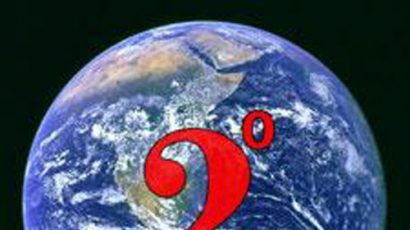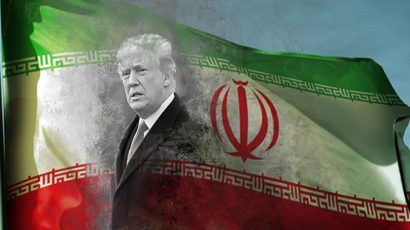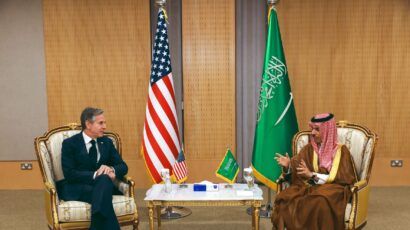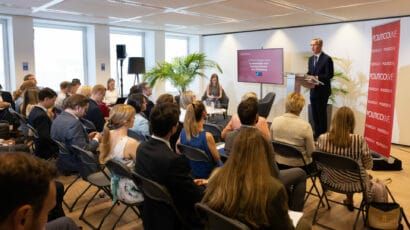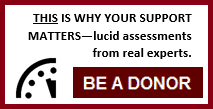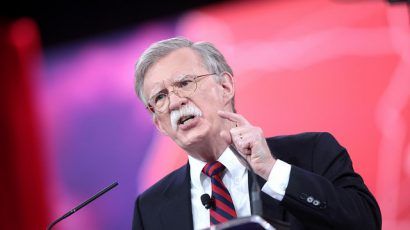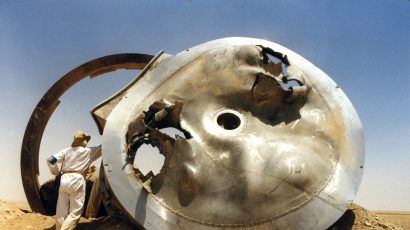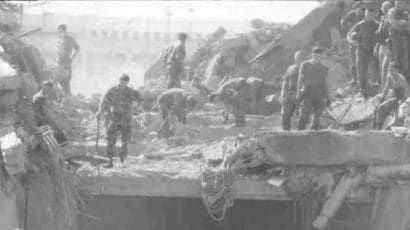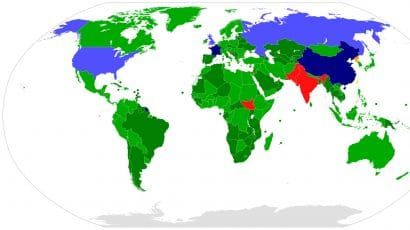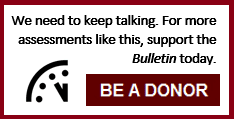Search results for nuclear terrorism
Amid the Ukraine crisis, looking again at Putin, the one-man show the West doesn’t understand
The stakes for having an accurate understanding of Russia’s president, Vladimir Putin, have never been higher. A misreading could have catastrophic consequences. Here’s what other foreign leaders need to understand about who Putin is, what he wants, how he thinks, where his ideas come from, and why he annexed Crimea in 2014 and intervened in Syria in 2015.
Creating an integrated U.S. national security policy
By asking what if, U.S. policy makers and advisers might find the solutions to restoring the country's credibility abroad.
How to succeed in Baghdad
As talks between Iran and the five permanent members of the UN Security Council and Germany (P5+1) move to Baghdad, leaders and analysts alike are wondering whether diplomacy will be any more successful now than during previous negotiations involving the Obama administration. To answer that question, it is important to understand why the previous talks failed and what is -- or might be -- different now.
Advancing China’s nuclear security
China, like all nuclear weapon states, bears a responsibility to provide leadership in nuclear security issues. But China's strategy for securing its nuclear weapons -- and the complex of facilities where fissile material for weapons is fabricated and stored -- has so far remained largely opaque.
Trump withdraws from the Iran nuclear deal. What now?
With his decision today to withdraw the United States from the Iran nuclear deal, US President Donald Trump has put the long-term future of the deal in doubt, at the very least.
Saudi Arabia can alleviate US concerns over its civilian nuclear energy program. Here’s how.
Two nonproliferation experts discuss how Saudi Arabia could become a responsible civilian nuclear power.
Weapons of mass destruction: What will be new in the 2022 NATO strategic concept?
At its upcoming summit in Madrid, NATO will issue a new Strategic Concept, the first since 2010. A focal point of the new Strategic Concept is bound to be weapons of mass destruction, because of Russia’s frequent chemical, biological, radiological, and nuclear threats during the Ukraine invasion.
What Obama’s Nuclear Posture Review accomplishes
After repeated delays, the 2010 Nuclear Posture Review--just the third such effort since the end of the Cold War--is finished. This document has been by far the most anticipated of its kind. Judging by occasional reports, it has been extensively coordinated and worked over--the hallmarks of a high-priority policy document.
Three myths about the Iran sanctions
Wrongheaded, fixed ideas have been plaguing the Iran negotiations
How to know if Iran breaks its word: Financial monitoring
The ebb and flow of money is an early indicator of any questionable nuclear activity
Bolton is right: Apply the Libya model to North Korea
Sometimes a good idea comes from a very surprising source.
Meeting Einstein’s challenge: New thinking about nuclear weapons
Einstein said that the atomic age called for a new way of thinking, one that focused on cooperation rather than competition. Why has progress been so slow?
1978: Is mankind warming the Earth?
This report is based on a monograph the author prepared for the World Meteorological Organization in Geneva, Switzerland.
Acknowledging reality: A pragmatic approach to Pyongyang
With North Korea having conducted its fourth nuclear test in January, the Korean Peninsula seems more distant than ever from denuclearization. Given this reality, what's the most effective way to approach the nuclear problem? The obstacles to progress are enormous. Pyongyang's inclinations are strongly realist, and the country's leadership sees nuclear deterrence as the ultimate … Continued
Is it time to ditch the NPT?
Should we drop the NPT treaty entirely, in favor of the Ban Treaty? One seeks to stop the further spread of nuclear weapons, while the other goes further and seeks to get rid of them entirely.
US courts say Iran owes terrorism victims billions. That’s an obstacle to a new Iran nuclear deal.
For the Iran nuclear deal to succeed, negotiators must address the billions of dollars’ worth of civil judgements to US victims of Iranian terrorism. If not, Iran may question whether it will ever receive meaningful economic gains in return for limiting or reversing its nuclear ambitions. If the United States proposes that Iran pay a percentage of the proceeds from expanded energy royalties over an extended period, reluctant investors might be reassured about doing business with Iran. In such a case, Iran’s economy could grow, its terrorism victims would gain partial closure, and its nuclear ambitions would be limited or reversed.
The NPT turns 50: Will it get to 60?
In the next decade, it is all too likely that the past success of the Non-Proliferation Treaty (NPT) in preventing the further spread of nuclear weapons among the world’s nations will be reversed. Three trends make more proliferation likely.
A message from Tripoli, Part 5: How Libya gave up its WMD
What drove Qaddafi to decide to eliminate his proscribed weapons programs? Could those conditions be replicated elsewhere?
What can a pandemic teach us about nuclear threats?
The United States has already learned three important lessons from its failed pandemic response that should inform its nuclear strategy, so it doesn’t repeat similar mistakes in the future: investing in prevention is key; experts matter; and America needs to adjust to a new communications environment.
